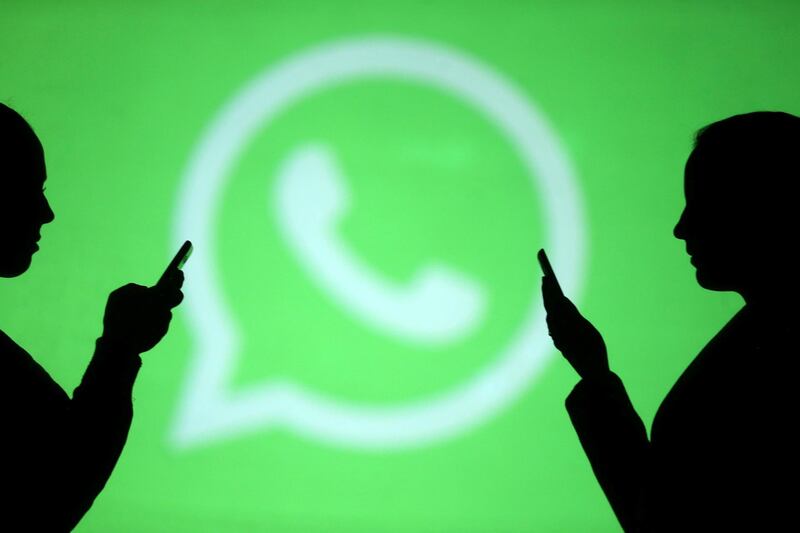WhatsApp banned hundreds of thousands of accounts in Brazil as the Facebook Inc. messaging service struggles to contain political shenanigans ahead of a runoff election in Latin America’s largest country.
“We have cutting-edge technology to detect spam that identifies accounts with abnormal behaviour so that they can’t be used to spread spam or misinformation," a WhatsApp spokesperson wrote in an email.
"We are also taking immediate legal measures to prevent companies from sending mass messages via WhatsApp and have already banned accounts associated with those companies."
There are around 120 million users of the messaging service in Brazil, whose population is 210 million.
___________
Read more
Brazil presidential candidate blames Jair Bolsonaro of dirty tricks
Syrians worry about regime proposal to ban WhatsApp calls
____________
Facebook set up a "war room" to spot and eradicate misinformation, hate speech and other damaging content during Brazil’s election this month. It’s a test for the social network ahead of midterm elections in the US later this year.
While the company said it was able to thwart false information on its main social network, it’s had more trouble controlling misbehavior on WhatsApp, which is encrypted and virtually impossible to monitor.
Brazil’s runoff election is on October 28, when far-right politician Jair Bolsonaro faces leftist Workers’ Party candidate Fernando Haddad.
On Thursday, the latter accused his competitor of receiving illegal and undeclared corporate donations after local newspaper Folha de S.Paulo reported companies are paying for a mass social media campaign against Mr Haddad. Mr Bolsonaro wrote on Twitter that his opponent’s party “isn’t being damaged by fake news, but rather by the TRUTH”.
WhatsApp said on Friday that it’s taking the accusation seriously. "We are committed to reinforcing WhatsApp policies equally and in a fair way to protect the users’ experience," it added.
The messaging service confirmed that it blocked the account of Mr Bolsonaro’s son Flavio for spam a couple of days ago.
The company said it was unrelated to the accusations on Thursday.
It also noted that it banned an account related to former Brazil president Dilma Rousseff, a member of the Workers’ Party.





